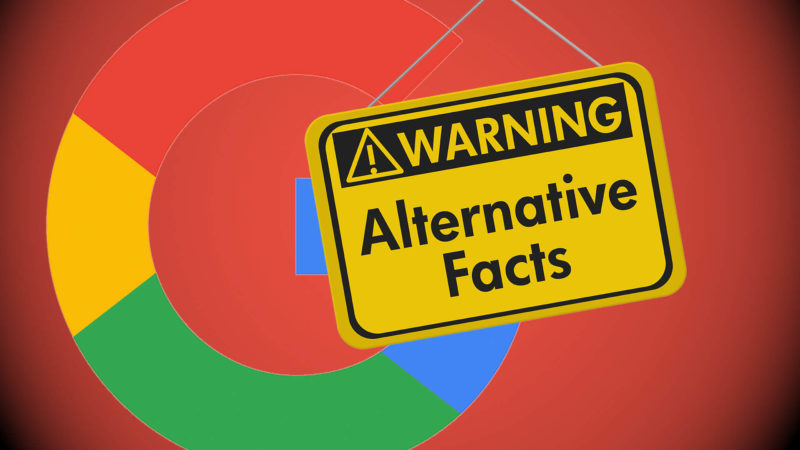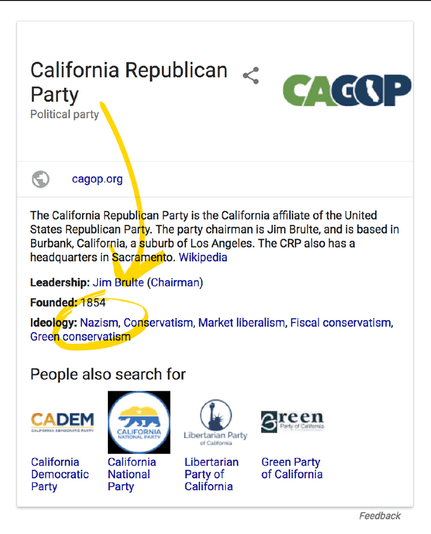Google’s reliance on Wikipedia makes it vulnerable to search pranks
Google said Wikipedia prank caused Republican "Nazism" Knowledge Panel.
Once again, Google is in trouble with conservative critics because of its perceived anti-Republican bias. The company’s Knowledge Panel for the California Republican party briefly showed that the party’s ideology included “Nazism.”
Here’s an image of the Knowledge Panel originally grabbed by Vice News:
Google clarified that this was a problem with someone pranking Wikipedia, which is often the source for Google’s Knowledge Panel content and Featured Snippets. Change logs for the California Republican party page on Wikipedia revealed the problem.
Looks like it was a Wikipedia cache remnant. Somebody removed "Nazism" from the Ideology section yesterday. Looks like it was up for about six days.https://t.co/SMN2qXc1sA pic.twitter.com/1j7bcVl22p
— Ben Collins (@oneunderscore__) May 31, 2018
Were it not for the “fake news” and 2016 Russian meddling crises, this would simply be another short-lived SERP scandal, of which there have been many in the past. However, in the new context of content manipulation to sway public opinion, it takes on greater seriousness and seems to underscore the ongoing problem of editorial oversight.
Both Facebook and Google have announced various measures aimed at catching “fake news” or false and inflammatory information in their feeds or search results. However, reliance on user-generated platforms or crowdsourcing is problematic.
In the past, these “wisdom of the crowds” systems were supposed to catch incorrect information and prevent its widespread dissemination. However, 2016 proved that crowds often aren’t as wise as assumed. According to AP, the original “Nazism” entry was made anonymously on May 24 and fixed a week later. Yesterday, the entry was added again and immediately caught.
It’s ironic that the coverage has probably given the controversy far more exposure than it would have had otherwise. Eventually, the error would have been caught and fixed. However, it raises the question of Google’s reliance on Wikipedia, which can be easily manipulated to impact what people see in search results.
Google, YouTube, Facebook and others in the US are generally not liable for content on their platforms. However, the European Commission seeks to reverse that policy and impose liability for “illegal” content if it is not taken down immediately, or even proactively.
Opinions expressed in this article are those of the guest author and not necessarily Search Engine Land. Staff authors are listed here.
Related stories

